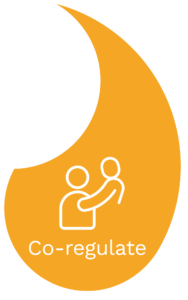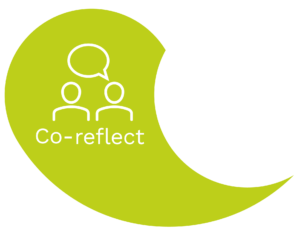Outcomes First Group celebrates Great Place to Work™ Best Workplaces™ 2024 ranking
Celebrations are underway at Outcomes First Group, the UK’s leading specialist provider of education, as it been
Dr. Leanne Johnson, Head of Trauma Informed Practice and Consultant Clinical Psychologist, has developed the 3 Cs Model of Trauma Informed Practice – Connect, Co-Regulate and Co-Reflect. It is a comprehensive approach based on the current evidence base and ‘what works’, emphasising the importance of relationships that young people require in trauma recovery. This helps us to meet and respond thoughtfully to the underlying need, rather than react to behaviour.
It can take huge persistence in developing positive and meaningful relationships with those with lived experience of trauma. Young people may also be drawn to re-enacting their early trauma subconsciously and we recognise the challenges this can bring and the need to support well-being. We embed reflective practice groups within teams and services to provide protected time to press the pause button together. This enables us to be aware of our own needs and how this relates to other individuals and we work to embed the Healthy Mind Platter (Dan Siegel). Reflective Practice also enables us to make sense of complex relational processes in the endeavour of developing and protecting a responsive, reflective and positive culture.
The Trauma Informed Practice approach encourages colleagues to standardise their practice through the lens of Connect, Co-Regulate and Co-Reflect.

Finding ways to connect with young people and encouraging them to trust others intentions is a critical part of the approach. Connect supports colleagues to help young people feel ‘seen’ and kept in mind throughout their day. The approach refers to this as therapeutic anchor points and includes strategies such as ‘Meet and Greet’ and ‘Random Acts of Kindness’. Connect also addresses the use of positive praise, which can be overwhelming for young people with such a negative self-concept. Using specific, subtle and unexpected praise can support this and reduce the likelihood of young people sabotaging success. An important part of connect is the use of PACE (playfulness, Acceptance, Curiosity and Empathy) as a way of being, rather than a strategy to turn on and off! Connect emphasises the importance of adults approaching young people to repair relationships in a non-shaming way – to re-connect relationally as soon as is possible.

Developing and supporting a sense of safety in the environment is the foundation of Co-regulate. The approach supports safety with creating consistency, repetition, predictability, structure and boundaries. Co-regulate assumes that young people have not learnt to recognise their thoughts and feelings and how to manage them; the approach helps give skills to support young people to develop skills in their emotions and behaviour through the support of others. Strategies include emotions coaching, teaching practical skills such as 5,4,3,2,1 Grounding Skills, Brain Stem Calming Approaches, as well as an awareness of curriculum areas to be sensitive of, e.g. Sex and Relationships. Co-regulate focuses on calming the fight flight freeze survival response that is very practiced and engrained in young people with lived experience of trauma.

Co-Reflect is to support with therapeutic boundaries that are emotionally containing and integral to helping children who have experienced trauma learn safe and effective ways of living their lives. Co-Reflect recognises shame as being a barrier to support progression and learning as young people will shield their shame to protect them from a sense of ‘badness’ and fear of rejection when feeling even slightly criticised. Co-Reflect supports with non-shaming and inclusive ways of providing boundaries, including the use of natural and logical consequences to help children learn linked and appropriate responses. Co-reflect is not about a lack of boundaries (or being fluffy!) or only responding with nurture. It is about supporting the young people in a relationally collaborative and empathic way, helping them to positively prepare for their future to be the best they can be.
The Trauma Informed Practice Strategy is not just about training; it is important that Trauma Informed Practice is embedded and mainstreamed to create a therapeutic environment across OFG. We have developed a Trauma Informed Practice Accreditation Development process to help support services in achieving a Bronze, Silver or Gold level of practice. The accreditation is based around: Leadership and Development of Trauma Informed Practice; Creating a Positive and Trauma Informed Culture and Embedding Connect, Co-Regulate and Co-Reflect.
We also embed practice through connecting regularly together as a whole group with nominated and passionate Trauma Informed Practice Champions for each service. This enables us to share great practice and ideas to develop, embed and progress the Trauma Informed Practice Strategy. Our Lived Experience Expert Group have been involved in the strategy, enabling us to learn from them to ensure that we are providing the best education and care for our young people.
Read more about Trauma Informed Practice here.